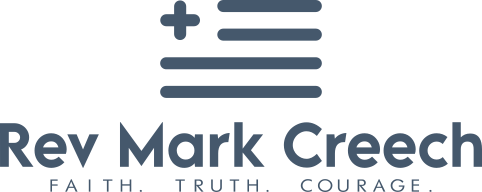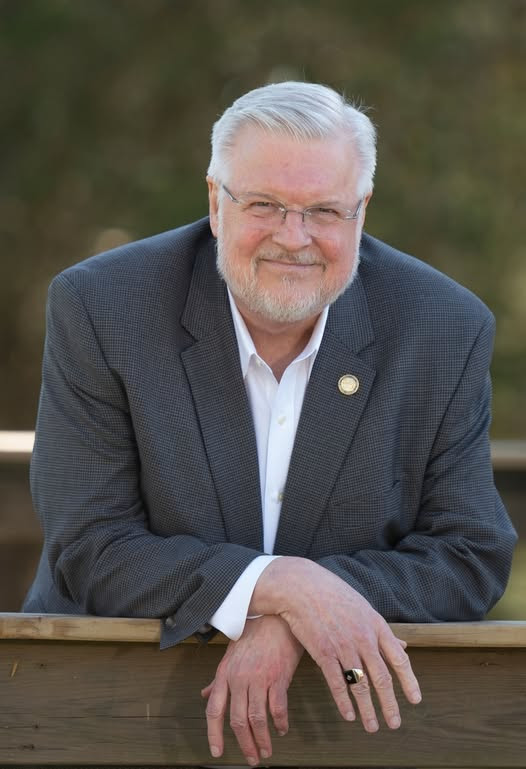Return America
Wednesday of this week marked the end of “crossover” in the North Carolina General Assembly. “Crossover” is a critical legislative deadline by which bills must pass out of one chamber – either the House or the Senate – to remain eligible for consideration during the rest of the legislative biennium (a two-year session).
If a measure does not pass at least one chamber by the crossover deadline, it’s generally considered dead for that session – unless it deals with topics exempt from crossover rules, such as appropriations (budget), constitutional amendments, or redistricting.
Although we remain “cautiously optimistic,” as all legislative initiatives are still subject to the Governor’s veto, the 2025 legislative session shows great promise at crossover for the passage of numerous measures that reflect values consistent with a strong Christian worldview. In North Carolina, every bill passed by the legislature must either be signed by the Governor or left unsigned for up to 10 days to become law. A veto kills the bill unless the legislature can muster enough votes to override it.
These are the legislative proposals that have risen to the forefront of Return America’s concerns. Please don’t keep this report to yourself – share it with your family, friends, and fellow church members. This information is too critical to neglect. Now is the time to pray – bring each of these legislative proposals before the Lord with heartfelt urgency.
Faith and National Identity
HB 16 – “In God We Trust” Display Bill Advances
The North Carolina House has overwhelmingly passed House Bill 16, a bill requiring the national motto, “In God We Trust,” to be prominently displayed in both the House and Senate chambers. The legislation, which cleared several committees, passed with strong bipartisan support in a 100 – 17 vote and has now moved to the Senate. Supporters view the measure as a reaffirmation of America’s spiritual and moral foundations, emphasizing that God, not government, grants rights and freedoms.
The objections raised by opponents, rooted in a modern misreading of the separation of church and state, overlook the true intent of the First Amendment. Rather than prohibiting expressions of faith in public life, the Constitution was designed to prevent the establishment of a state-sponsored religion. Displaying the national motto serves not as a religious endorsement but as a historical and philosophical statement. It serves as a reminder that governing authority should be exercised with integrity and humility in recognition of the higher moral order upon which our nation was founded.
Safety and Security for Private Schools
Private School Security Measures Advance in Both Chambers
Two companion bills – House Bill 193 and Senate Bill 280 – have made the crossover deadline and are now advancing in the North Carolina General Assembly, giving private schools the option to authorize trained employees, volunteers, and even visitors with concealed handgun permits to carry firearms on campus. With administrator approval and strict training requirements, these measures would allow responsible individuals to serve as protectors of students. Senate Bill 280 also permits non-lethal tools such as Tasers and pepper spray to be securely stored on-site. Return America has long championed such legislation, emphasizing the right of private institutions to secure their campuses without relying on taxpayer-funded personnel.
These bills offer much-needed protection for private school students, who are often left defenseless due to limited resources. The effort is not about fostering a “gun culture” but about empowering schools to make safety decisions appropriate for their communities. With the proposals clearing major committees and gaining momentum, the legislation marks the most significant step ever taken toward closing the security gap between public and private education.
The Private School Security initiatives and the In God We Trust display are of top priority for Return America.
Protecting Students from Harmful Influences in Schools
House Bill 636: Ensuring Age-Appropriate and Transparent School Library Materials
House Bill 636 provides much-needed safeguards by establishing clear policies and procedures for the selection, approval, and removal of library materials in North Carolina’s public schools. It requires each public school unit to adopt a uniform process overseen by a community library advisory committee, which reviews media for literary quality, educational value, and age appropriateness. Any material that contains sexual content or is considered pervasively vulgar is automatically deemed unsuitable for students. Library media may only be added with approval from the school’s governing body within 60 days of recommendation, and proposed additions must be posted online with an opportunity for parents and county residents to object. The legislation also requires regular review of all media and the removal of any that no longer meet the established standards.
This legislation is essential today because parents across the state and the nation have raised serious concerns about sexually explicit and age-inappropriate content appearing in school libraries, often without their knowledge or consent. As cultural norms shift and access to controversial materials increases, HB 636 reasserts the rightful role of parents and local communities in determining what is appropriate for children in public education. It promotes transparency, accountability, and respect for the developmental needs of students while creating a legal avenue for families to hold school systems accountable if the process is violated.
House Bill 328: Protecting Schools from Hemp and Vapor Product Use
House Bill 328 would strengthen protections for students by prohibiting the use of hemp-derived consumable products, including items containing cannabinoids such as THC, CBD, and their variants, on all school property and at school-sponsored events. The bill applies to public school units, certain nonpublic schools, charter schools, regional and laboratory schools, and the North Carolina School for Science and Mathematics. It builds on existing laws that already ban tobacco use in these settings by extending those restrictions to include hemp-based products. The bill also formally defines “tobacco products” to include vapor products such as e-cigarettes, ensuring their prohibition under current school tobacco policies.
This legislation is needed today as hemp-derived and vapor products often marketed in youth-friendly flavors and packaging have become increasingly accessible to minors. These substances pose risks to student health, hinder learning environments, and frequently go undetected under vague or outdated school policies. HB 328 addresses these gaps by creating clear, enforceable standards to help keep intoxicating or addictive substances off school grounds and away from children.
Strengthening Parental Rights and Family Integrity
Senate Bill 442 Protects Parental Rights on Gender Issues
Senate Bill 442 – Parent Protections Act, makes clear that parents, guardians, foster families, and adoptive parents cannot be accused of abuse or neglect simply for raising a child according to their biological sex. It also prevents adoption and foster care agencies from denying or delaying placements just because a parent does not support a child’s gender transition.
The bill protects these families from being disqualified or punished for their beliefs and decisions as long as they are not otherwise harming the child. It ensures that upholding a child’s biological sex does not count as abuse under state law.
House Bill 519: Protecting Parental Rights in Minors’ Medical Decisions
House Bill 519 ensures that, in most cases, minors cannot consent to medical treatment without parental involvement. It repeals current law that allows minors to be treated for sexually transmitted diseases, substance abuse, or emotional problems without a parent’s knowledge or consent. The bill also expands the scope of individuals who may treat a minor in emergencies when a parent cannot be reached.
The bill also gives parents the right to see their child’s medical records in most cases unless specific exceptions apply, such as court orders or ongoing abuse investigations.
Shielding Children and Families from Sexual Exploitation and Ideological Harm
House Bill 805: Prevent Sexual Exploitation of Women and Minors Act
House Bill 805, the “Prevent Sexual Exploitation of Women and Minors Act,” seeks to protect individuals from exploitation in online pornography. It requires online platforms to verify that everyone appearing in pornographic content is at least 18 years old and has provided written consent for both their participation and the distribution of the content. Platforms must establish a process for individuals to request the removal of non-consensual content. If an image is found to lack proper consent, it must be removed within 72 hours. Additionally, the bill mandates that platforms block removed images from being re-uploaded.
Violations of the bill’s provisions carry civil penalties, with fines of up to $10,000 per day for each image remaining online without consent. The bill also allows victims to pursue civil lawsuits for damages and authorizes the state’s Attorney General to enforce its provisions. By holding online platforms accountable and providing legal recourse for victims, the bill strengthens protections against the exploitation of individuals in pornography.
House Bill 606: Protecting Vulnerable Individuals and Ensuring Medical Accountability in Gender Transition Procedures
House Bill 606 addresses a critical and emerging issue in modern healthcare – medical accountability in gender transition procedures, particularly those involving minors. It extends the statute of limitations for malpractice claims arising from gender transition services to ten years after an individual turns 18, acknowledging that the full consequences of such life-altering interventions may not be realized until well into adulthood. This ensures that young people who may have been rushed into puberty blockers, cross-sex hormones, or surgeries without fully understanding the long-term effects are not denied justice due to an unreasonably short legal timeframe. The bill also prohibits healthcare providers from requiring patients to waive their right to sue, preventing vulnerable individuals, especially minors, from being coerced into signing away legal protections they may not fully comprehend.
Furthermore, HB 606 serves a prudent fiscal and moral purpose by prohibiting the use of taxpayer dollars to fund gender transition procedures, including surgeries, hormone treatments, and puberty blockers for incarcerated individuals. With increasing concern over the rise in gender transition services being offered under state-funded health plans, the bill ensures that government funds are not used to subsidize controversial and often irreversible treatments, particularly in correctional settings where consent and medical necessity may be harder to determine. While still allowing necessary exceptions for the State Health Plan for Teachers and State Employees, this legislation reflects a growing consensus that more safeguards are needed around both the practice and public funding of gender transition procedures.
Conclusion
There is a noteworthy and encouraging aspect to this report: every legislative initiative mentioned herein represents a positive, proactive effort to advance a culture rooted in Christian moral principles. Remarkably, none of the bills require strong opposition due to undermining moral character; instead, they all work toward either strengthening or restoring it. This reflects an answer to the prayers of many Citizen Christians who have worked and prayed earnestly for America to return to the Judeo-Christian principles that made her great. Our prayers have borne fruit, and we must continue to pray offensively – pressing forward in faith and purpose. Yet a word to the wise: we must also pray defensively. The 2025 legislative session is far from over. Last year, Senate leadership prioritized expanding gambling across the state (casinos, video lottery terminals) and legalizing so-called medicinal marijuana. Although such measures were not filed this session and missed the crossover deadline, it would be imprudent to assume that they are off the table. If leadership remains committed to advancing them, they will likely find creative procedural routes to do so. While they may have abandoned these efforts, it’s far more likely they are simply biding their time. That’s why we must remain vigilant, prepared to speak out and act decisively to protect our great state from such harmful proposals.
Thank You.
Respectfully Submitted,
Dr. Mark H. Creech
Government Relations


